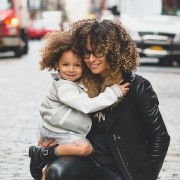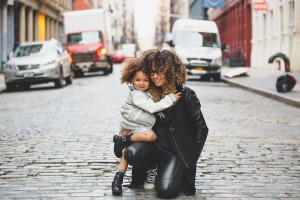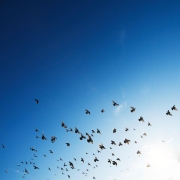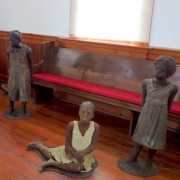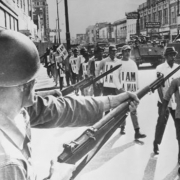Talking to your 4 year old about racism
At the entrance to Key Span park there’s a larger-than-life statue of Pee Wee Reese and Jackie Robinson, Reese’ arm is around Robinson’s shoulder. If you go to a Brooklyn Cyclones ballgame, that’s the first thing you’ll see. When your four year old asks why one man has his arm around the other’s shoulder, you have an opportunity to teach your child about racism. You can explain the significance of that moment in baseball history as shown in the movie “42” when Robinson, the first negro player in a professional baseball league was booed by the crowd and Reese, the team’s shortstop, showed the angry crowd that Robinson was one of them, a member of the Brooklyn Dodger’s team. Four year olds have long been able to distinguish between differences and similarities; they know about fair and unfair; they understand fighting; and they know about making it better. So, there’s a lot you can teach.
History
You might say: A long time ago, the great, great, great grandparents of people whose hair and skin look like Jackie Robinson were stolen from countries in Africa and brought to this country to be slaves for people whose hair and skin look like Peewee Reese. That was when they started calling us black people and white people. We’re also called black race and white race. Racism is when people from one race think they’re better and more powerful than people from the other race, even though we’re all people.
Civil War
You might say: Then there was a war to free the Black slaves. Some White people owned slaves but other white people fought to end slavery. There were many heroes – black and white. But freedom didn’t change the hearts and minds of white people who used to own the slaves, and they continued to have mean and bad thoughts about Black people. We call those kinds of thoughts race prejudice. Those bad thoughts are a part of racism.
Laws
You might say: Many rules were made that were unfair to Black people. We call those rules laws and we call the unfairness “discrimination”. All together, we call the bad thoughts and unfairness “racism”. There are been many heroes who have fought to end these unfair laws. One law said that only white men could play baseball in the Major Leagues. Jackie Robinson was a hero because he is the first Black man to play major league baseball. Peewee Reese is a hero because he stood up to an angry crowd that didn’t want Robinson to play. Reese put his arm around Robinson’s shoulder to show the crowd that he and Robinson were friends, teammates, and that he was breaking that bad rule that said that Robinson couldn’t play.
Right Now
You might say: Racism is still around us and we have to fight it. That’s why living in a neighborhood with Black and White people and going to school with Black and White people and having play dates with Black and White friends is something we want to do. And I hope we have more of these conversations because I’m happy you want to know about these important stories.

